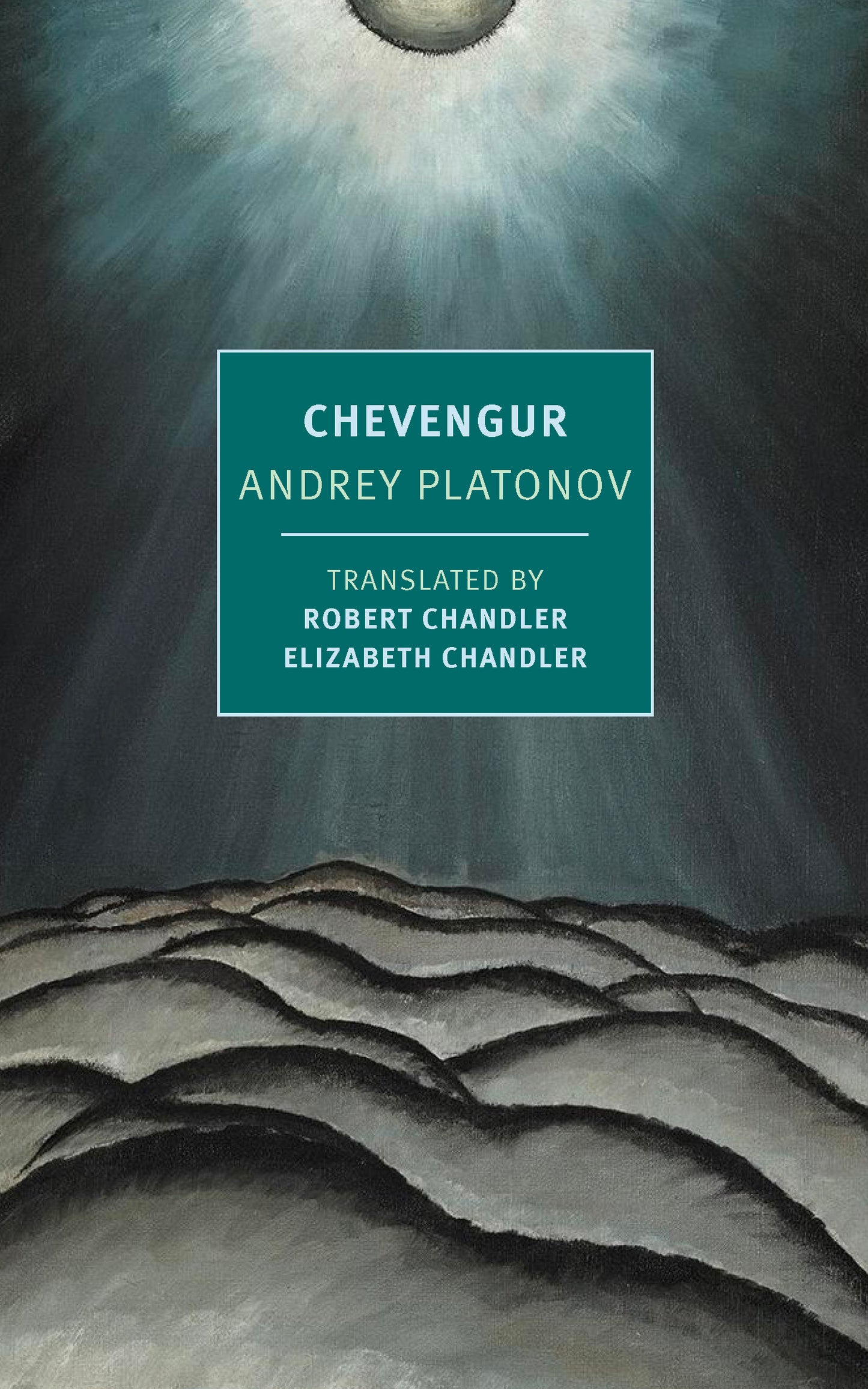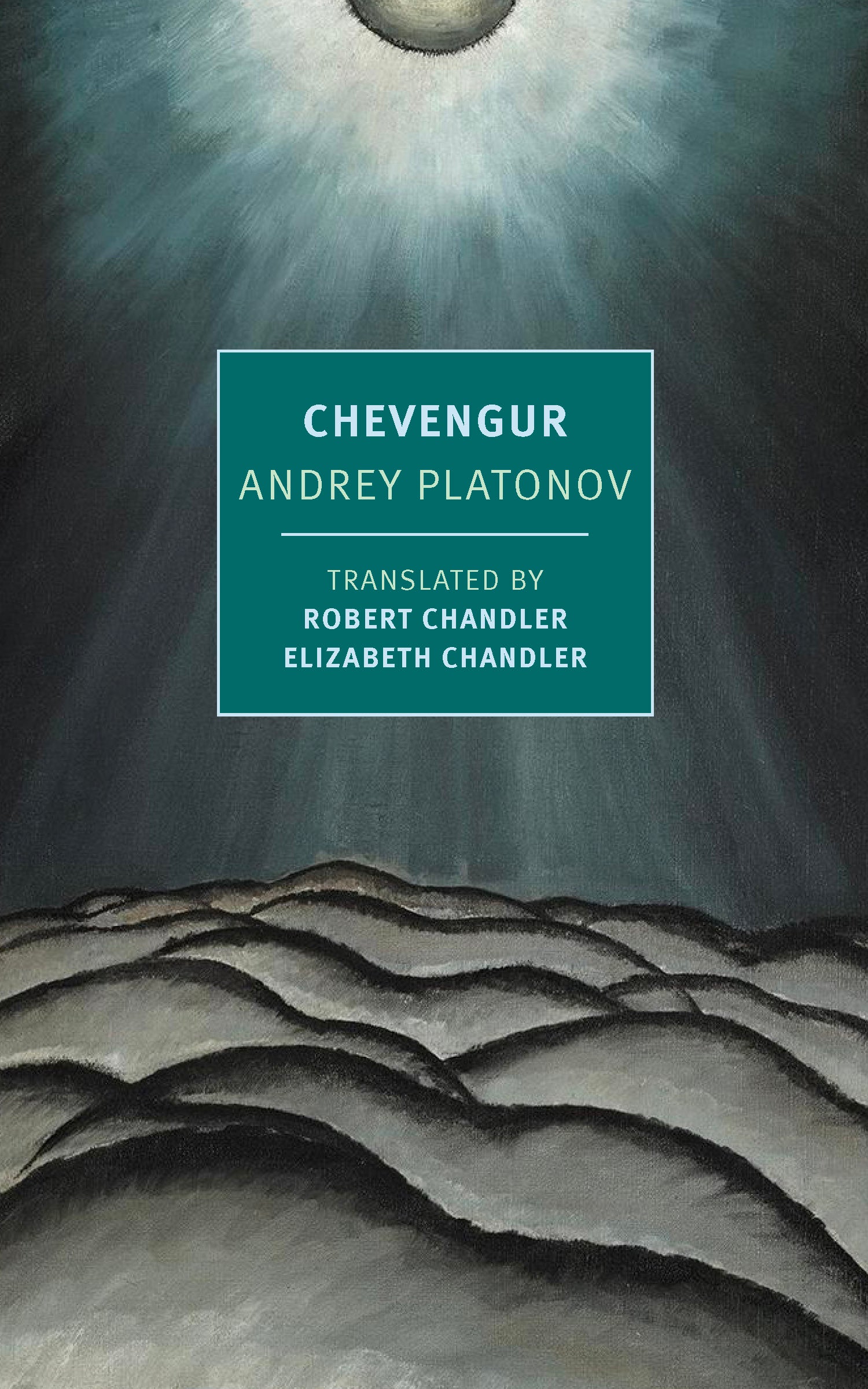At nearly 100 years old, Andrey Platonov’s novel Chevengur is a tome of revolution and grief. What may at first encounter seem a Quixotian expedition across the central Russian steppe, quickly turns into a philosophical novel probing the deepest questions on Russia’s October revolution and the communist society that would follow it. Centered around the fictional city of Chevengur, located in Russia’s central steppe, Platonov’s novel offers a glimpse into what an open and enlightened philosophical debate might have looked like in the early days of the Soviet Union...with flashes of romance and much of the open steppe, the novel promises both the seasoned Russophile and the curious newcomer something unique on every page.
—Jack McClelland, On the Seawall
Chevengur is unlike anything else in Russian or Soviet literature. The period in which it was written, as the revolution gives way to Stalinism, is also a time in which language is torn asunder...This is a novel where man and men, in all their foolishness, live together, at least for a while.
—Duncan Stuart, “Exit Only”
Platonov is not just a voice of his generation but a sage to our own, warning us that the flaws of human idealism are condemned to overshadow its realized visions.
—Michael Barron, The Washington Post
Today, few books offer the level of insight into modern Russian history as Chevengur does, a 1929 novel by the Soviet writer Andrey Platonov, composed as the Bolsheviks established the Soviet Union and consolidated power.
—Anastasia Edel, The Atlantic
While it’s a commonplace to say a writer has a style all his own, no one quite resembles Platonov. He’s simultaneously a documentarian sharing a slideshow of the Soviet Union’s bloody history and a fabulist forging a prescient Russian version of magical realism. His touch is light. Without a conventional plot or character development, he leaves readers with vivid memories....More than translators, the Chandlers are in the business of literary reclamation. They previously translated Platonov’s The Foundation Pit, Soul, and Happy Moscow, all of which have their roots in Chevengur. Without the Chandlers, English-speakers would probably know Vasily Grossman as a mere footnote to Russian literature, rather than the author of Life and Fate, one of the previous century’s supreme novels. Without the Chandlers, Platonov, too, might have remained an obscurity among Anglophone readers. Now we have Platonov and his finest novel, Chevengur, thanks to the Chandlers.
—Patrick Kurp, The Wall Street Journal
By turns picaresque, ethereal, tragic and poetic, Chevengur is without doubt one of the great 20th-century modernist parables. Taken together with Platonov’s other major novel, The Foundation Pit—also available in translation by the Chandlers—it firmly establishes the author alongside Vasily Grossman as one of the great Soviet writers.
—Bryan Karetnyk, Financial Times
A superb work of Soviet-era Russian literature in a welcome, well-annotated new translation.
—Kirkus, starred review
[Chevengur] is at once comic and rich in pathos: Platonov’s depictions of the long-suffering peasantry can veer toward the absurd...but he draws them in great detail, lending them gravity and humanity through measured prose and a bend toward realism.
—Publishers Weekly, starred review
Like many of Platonov’s remarkable fictions...Chevengur offers contemporary readers a wholly imagined, often surprising and by turns terrifying and delightful world. It is one in which magic realism doesn’t predominate but which is invested by an otherworldly testimony about our dizzyingly unbelievable history, and brought to memorable life by a man who wasn’t afraid of telling all that he knew, believed and hoped.
—Scott Bradfield, The Spectator
I squint back on our century and I see six writers I think it will be remembered for. They are Marcel Proust, Franz Kafka, Robert Musil, William Faulkner, Andrey Platonov, and Samuel Beckett.
—Joseph Brodsky
In 1929, Andrey Platonov—poet, engineer, true believer wrestling with demons of unbelief—completed his massive lyrical novel Chevengur, where the suffering and violence of a Communist utopia are conveyed...through sadness, slow-motion pain, and linguistic bewilderment. The reincarnation of this masterwork in English [has been] impeccably midwifed by the Chandlers.
—Caryl Emerson
There is only one planet that we share, and the sense of belonging to this planet emerges, in miniature, on the steppes of Chevengur…. The speech of Platonov’s characters is the voice of the voiceless, but it is also the noise of grasses being digested in hungry stomachs, the silence of Kopionkin’s horse, and the murmur of the steppes.
—Maria Chehonadskih, The Nation






